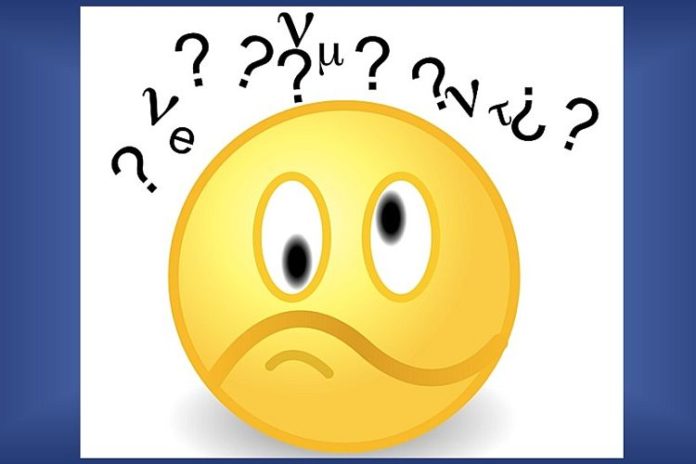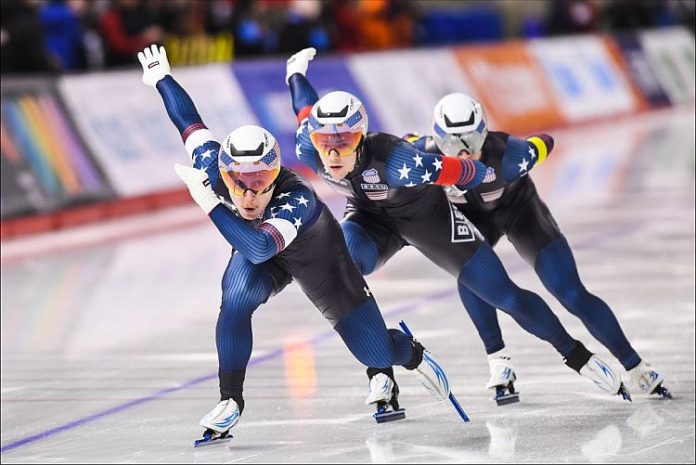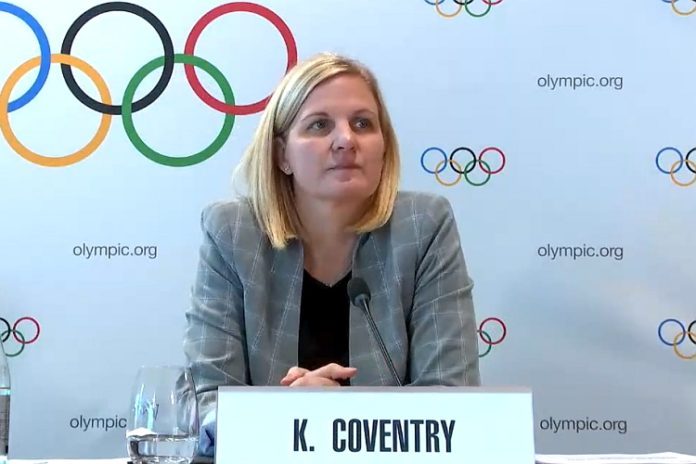★ The Sports Examiner: Chronicling the key competitive, economic and political forces shaping elite sport and the Olympic Movement.★
★ To get the daily Sports Examiner Recap by e-mail: sign up here! ★
≡ ATHLETE PAY ≡
Mark Twain, the iconic American writer and publisher, wrote in 1907, “There are three kinds of lies: lies, damned lies, and statistics,” attributing the remark to 19th Century British Prime Minister Benjamin Disraeli.
A recent example which Twain might have cited – it’s not at all clear that Disraeli ever made the remark – would be a poll conducted by the French-based Ipsos market research firm for the UNI World Players, which claims to be “the exclusive global voice of organized players and athletes across professional sport.”
Ipsos undertook a survey of 3,188 individuals aged 16 to 75 in three countries – Australia, France and the U.S. – between 27 September and 2 October 2024.
Based on that sample, UNI World Players head Matthew Graham (AUS) said, “This poll shows the public support for change.”
What?!?
Three countries speak for all? This is drivel.
The poll and the breathless announcement of the findings – “immense public support for greater compensation for Olympic athletes and increased athlete input in decisions affecting their careers” – is the latest political ploy by another activist group trying to create some action ahead of the International Olympic Committee’s March election of its next president.
To that end, this poll is – in my view – an insult to the IOC and the Olympic Movement:
● There are 206 National Olympic Committees and the Ipsos self-description says the company is active in 90 markets. Three markets were hand-picked for the survey.
● At Paris 2024, athletes representing 92 National Olympic Committees won medals. But UNI World Players picked three countries to survey.
● The U.S., France and Australia finished 1-4-5 in Paris in terms of total medals won during the Games of the XXXIII Olympiad. Why didn’t the survey include China (no. 2), Great Britain (3), Japan (6), Italy (7) or nos. 8-10: the Netherlands, Germany and South Korea. What about African NOCs?
If the IOC under successive Presidents Juan Antonio Samaranch (ESP: 1980-2001), Jacques Rogge (BEL: 2001-2013) and now Thomas Bach (GER: 2013-) has leaned into anything, it has been unity, and the insistence that the benefits of the Olympic television rights sales and sponsorships be distributed as widely as possible.
This polling prank proposes, as Graham says, “The next president must ensure the IOC acknowledges athletes’ hard work and dedication by paying them their fair share, and giving them an equal say in all matters affecting their careers, wellbeing and livelihoods.”
Who is he kidding?
The one obvious truth that none of these “athlete activists” mention is that the Olympic Games (and the Winter Games) comes once every four years. Even if the IOC paid athletes lavish prize money, what about the other three years? Well:
● The onus would fall on the International Federations, many of which would be in danger of folding up altogether if not for the IOC’s distribution of hundreds of millions of dollars in television rights monies to them every four years.
A few IFs have good programs to allow athletes to earn a living regardless of the Olympic Games; the FIS World Cup programs in Alpine and Cross Country skiing, Freestyle, Nordic Combined, Snowboard and Ski Jumping might be the best example of this. Others pay prize money for their major championships, such as World Athletics and World Aquatics.
Gymnastics, one of the three most popular sports at the Olympic Games and which will get close to $40 million from the IOC from the Paris Games, pays no prize money at all, to any of its athletes at any of its championships. Nothing.
● The IOC’s primary responsibility is to make sure that the Olympic Games and Winter Games actually happen. To this end, out of about $7.6 billion in revenue from 2017-21 – including the postponement of the Tokyo 2020 Games – the IOC paid the PyeongChang and Tokyo organizing committees a combined $2.86 billion, or about 38% of everything it collected.
Millions more were advanced to the organizing committees of Paris 2024 and Los Angeles 2028, bringing the total during the quadrennial to well past $3 billion, or about 40% of revenue.
Let’s add in another $1.14 billion for the IOC’s own event-production costs for PyeongChang 2018 and Tokyo 2020, which includes paying for the host broadcasting production and $62 million to NOCs to subsidize travel, uniforms and equipment.
And then there are the IOC’s payments to support the Court of Arbitration for Sport, the International Testing Agency, the World Anti-Doping Agency and more. All of these are programs developed by the IOC and support sports well beyond those on the Olympic program. And there are many more programs, such as the IOC’s Olympic Scholarships project, for 1,457 athletes, plus 223 teams in 2023.
The poll takes none of this into account, with Ipsos asking questions that provided background or context.
¶
So what did the poll show?
● Strong majorities in all three countries found sports governing bodies to be “trustworthy.” This included 60% in the U.S., 63% in France and 69% in Australia.
● Asked whether the IOC shares revenue with athletes, about 50-55% in all three countries did not know.
● Asked if the IOC should pay athletes competing in the Olympic Games either directly or indirectly, 59% in the U.S. said yes (41% said no, or didn’t know), 67% in France said yes and 68% in Australia said yes.
(Of course, the IOC would say that it already does this, both directly and indirectly.)
● There was majority support – but hardly unanimous – for athletes being able to promote their personal sponsors at the Games, regardless of whether these sponsors were affiliated with the IOC or the organizing committee: 59% in the U.S., 57% in Australia and 51% in France.
The question on whether athletes “should have an equal say” in decisions “which affect their careers” got support from 62-71%, not surprising given all three are high-functioning, first-world democracies.
¶
This project, to me, was a waste of time and money by the activist UNI World Players group and will have no impact whatsoever on the IOC going forward.
If there was any understanding at all of the way the IOC has done business over the last 40 years, any worthwhile survey would have needed representation from all five continents and a selection of large and small National Olympic Committees.
Moreover, there is a significant split within the IOC, the National Olympic Committees and the International Federations on paying athletes:
● The National Olympic Committees, mostly from government funding – except in the U.S. – almost all have medal-bonus programs. This follows the format of the Olympic Games in ancient Greece, where the city-state which sent an athlete supported him.
● Only one International Federation – World Athletics, headed by IOC Presidential candidate Sebastian Coe (GBR) – has ever paid prize money. This started at Paris 2024, with World Athletics paying each gold-medal winner $50,000; other federations were furious … because almost none of them have that kind of money available!
● The IOC sees its role as a sports development organization, using sport to uplift society in all 206 countries in which there are NOCs. That means direct payments to athletes are not a top priority, but part of a larger effort.
A three-country poll is worthless with an organization that operates in 206 places. And as far as the IOC Presidential Election is concerned, if Coe wins – and he’s a real contender – then the idea of more athlete payments will come with him. Less so for the other six.
But the IOC’s own concept of unity and development can be employed much more cleverly – as opposed to what was done in this poll – as not just a reward for athletes, but an aspirational goal.
There are, in rough terms, 11,000 athletes at the Olympic Games and 3,000 at the Winter Games, so about 14,000 all together. The IOC is not going to pay medal bonuses, since it only reinforces – for the most part – payments to those stars who already get paid.
But an honorarium to each and every athlete who qualifies for the Games is another matter and would appeal to the athlete-equality mantra which is very much a part of the IOC’s view of the Games. A $10,000 payment would total $140 million each quad, a figure well within the reach of the IOC.
(I personally would only pay those who actually qualify, not those receiving gifted “universality” places; but that’s just me.)
This kind of approach would receive some close scrutiny within the IOC, as it rewards athletes equally, without regard to nationality, gender, ranking and so on. The IOC likes that, and it could work.
What it will not pay much attention to is a three-country survey falsely passed off as representative of worldwide sentiment. Twain was right, even if Disraeli didn’t actually say “there are three kinds of lies: lies, damned lies, and … commissioned polls.”
Rich Perelman
Editor
★ Receive our exclusive, weekday TSX Recap by e-mail by clicking here.
★ Sign up a friend to receive the TSX Recap by clicking here.
★ Please consider a donation here to keep this site going.
For our updated, 895-event International Sports Calendar for 2025 and beyond, by date and by sport, click here!


























